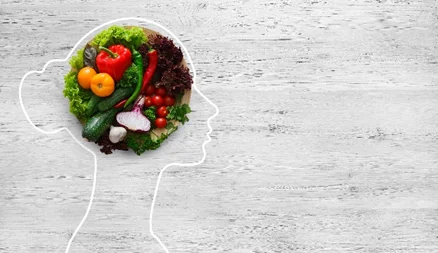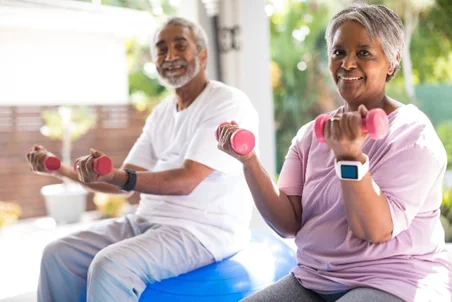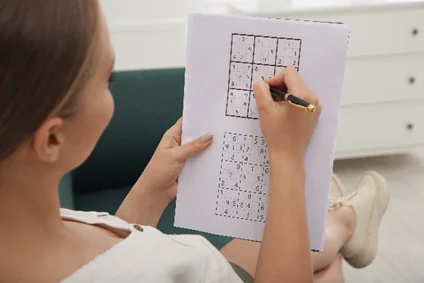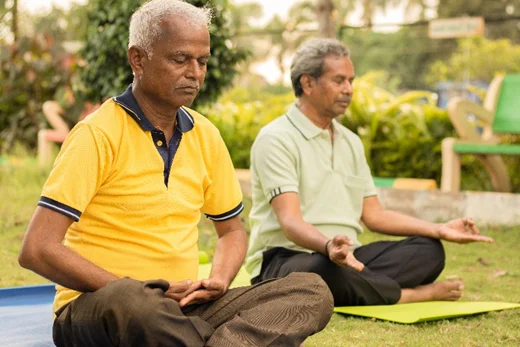MENTAL HEALTH

Seniors are especially vulnerable to mental health issues. Problems with memory, cognitive decline and loneliness all play a role. According to Centers for Disease Control study of mental health in older adults aged 55+, it is estimated that 20% of seniors experience some type of mental health concern. The most common conditions include anxiety, cognitive impairment and mood disorders such as depression or bipolar depression.
These common mental health issues can have a negative impact on physical wellbeing for seniors. The CDC states that these conditions can lead to impairments in physical, mental and social functioning and can affect and complicate the treatment of chronic conditions. Although the rate of older adults with mental health conditions tends to increase with age, mental health issues are not a normal part of aging.
The World Health Organization defines health as “a state of complete physical, mental, and social well-being and not merely the absence of disease or infirmity”. Because mental health is essential to overall health and well-being, it must be recognized and treated in all Americans, including older adults, with the same urgency as physical health. For this reason, mental health is becoming an increasingly important part of the public health mission.
Older adults are less likely to access mental health treatment, whether due to stigma, lack of access to providers, or the misconception that conditions like depression, anxiety, or others are a normal part of aging.
Tips to Improve Mental Health for seniors

Nutrition
Diet not only affects the body physically, but also can influence senior’s mental health for better or for worse.
Embracing a heart-healthy, balanced diet rich in whole grains, fruits and veggies, lean proteins, and healthy fats has proven to promote brain health, and has the potential to mitigate against depression and reduce dementia risk. Reducing caffeine intake or switching to decaffeinated beverages may be helpful for some people.
Exercise

Whereas exercise is mostly known for its physical benefits, it is also an essential mental health activity. Exercise boosts mood by increasing endorphins and other feel-good chemicals in the brain and reduces stress hormones, proving to be a remedy for managing both depression and anxiety!
Aim for 30 to 60 minutes of physical activity most days of the week and incorporate various forms of movement, including cardio, resistance training, and balance exercises.
Regular exercise, especially something repetitive like walking or swimming laps, can also help ease anxiety. If you usually exercise outdoors, consider visiting the local Y, senior center, or a mall (for some mall walking) when the weather is bad. If you have any concerns about exercising, you should always mention them to your healthcare provider.
Go Outside

Even if just for 20 minutes, go outside! A short bout of the great outdoors can instantly boost mood and energy levels.
Getting outside also supplies vitamin D, with a deficiency of the “sunshine” vitamin being been linked to higher rates of depression and cognitive impairment. In addition, with seniors more susceptible vitamin D deficiency, getting outside more often can deter such risks.
Socialize with Friends, Family and Community

Keep family ties strong by staying involved with loved ones, as sustaining such connections has shown to contribute to a number of physical and mental benefits.
Along with staying actively involved with family members, remain connected with peers. Connecting with others extends beyond close circles and there are numerous community-based organizations seniors can take advantage of.
Exploring adult day care programs, local civic centers, volunteer work, and faith-based groups are valuable socialization opportunities.
Exercise Your Brain

Busying the brain can significantly boost seniors’ mental health and lessen the risk of dementia by sharpening memory, speeding up information processing, and improving reasoning and cognition.
Partake in at least 30 minutes of mind-stimulating activities daily, including piecing together puzzles, reading a book, learning how to play an instrument, playing board and card games, working on crossword puzzles, creating crafts, cooking in the kitchen, and organizing the closet.
Playing games with others can also busy the brain and simultaneously encourage socialization!
Try Yoga, Deep Breathing or Meditation

Studies suggest that meditating or doing yoga on a regular basis may help you feel less anxious. Call your local Y, senior center, or a nearby gym to find out if they offer yoga or meditation classes. Many do—and many gyms offer membership discounts for older adults. You can find meditation and yoga videos, DVDs, and CDs at many libraries, bookstores, or online
When people are anxious, they tend to breathe shallowly or even hold their breath without realizing it. This makes them feel more anxious. Instead, breathe slowly and deeply. Your ribcage should expand, or stick out, each time you breathe in. If you feel anxious, try to find a place where you can sit for a few minutes, close your eyes, and slowly breathe in and out deeply.
Get Plenty of Sleep

Sleep plays an integral part of mental health and according to the American Psychology Association, more sleep can lead to happier, healthier, longer, and safer lives.
Seniors are at increased risk of sleep disturbances and insomnia, which increases the risk of depression and other chronic diseases. You should strive for 10 hours of sleep every night.
Mental and Behavioral Health Resources
- Administration on Aging – The Administration on Aging is an agency of the U.S Department of Health and Human Services. Its webpage offers links to resources, programs and agencies covering a range of topics on substance abuse and mental health in the elderly.
- Behavioral Health Treatment Services Locator – This service from the Substance Abuse and Mental Health Services Administration can help you find a nearby treatment facility for mental health aging issues.
- Health in Aging – This service from the American Geriatrics Society provides information for older adults and family members about mental health concerns.
- Mental Health.gov – This site from the U.S. Department of Health & Human Services provides one-stop access to information on mental health and mental health problems.
- National Council on Aging – This organization offers a range of services and links to services for senior adults, along with a page of helpful resources.
- National Mental Health Consumers Self-Help Clearinghouse – This directory provides comprehensive information on national and local programs providing mental health services for older adults.
- Older Adults and Mental Health – Learn about senior mental health and depression in older adults with this resource from the National Institute of Mental Health.